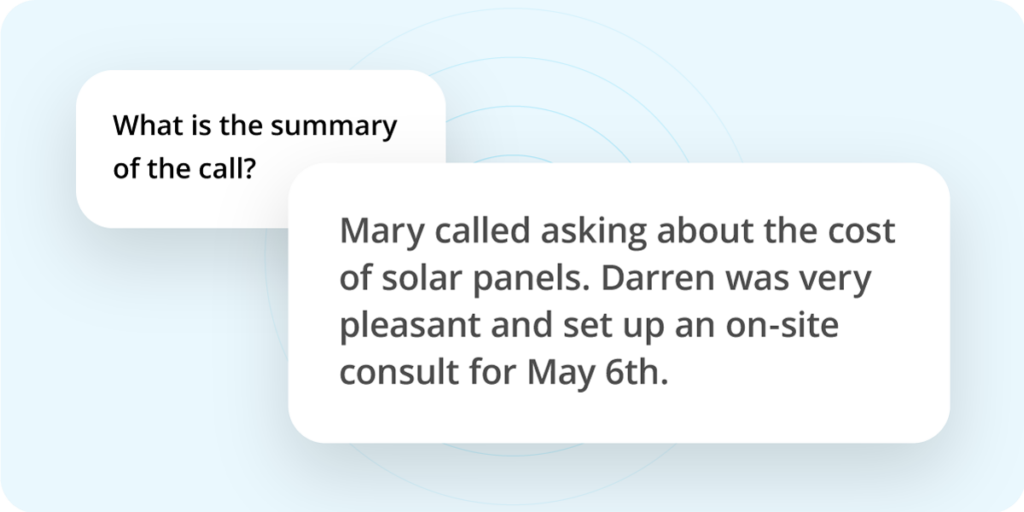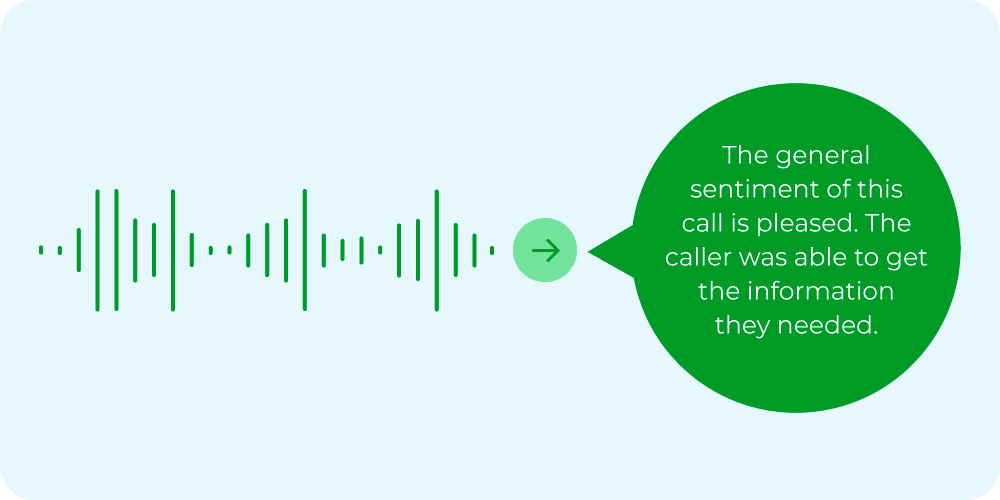What is Conversation Intelligence?
The Power of Customer Conversations
Every day, your customers tell you exactly what they want—but are you listening? While 76% of customers still prefer phone calls for complex issues, most businesses miss crucial insights hidden in these conversations. As competition intensifies, the ability to extract actionable intelligence from customer interactions isn’t just helpful—it’s essential for survival and growth.
This is where conversation intelligence (CI) comes in, transforming everyday customer communications into a goldmine of insights that can drive your business forward.
Understanding Conversation Intelligence
Conversation intelligence is the ability to systematically identify, analyze, and act on signals in communications. This includes activities such as recording calls, analyzing chat logs, or scrutinizing email exchanges. But it’s more than just collecting data—it’s about turning conversations into actionable insights that drive business growth.
Companies using conversation intelligence tools see an average 27% increase in revenue and a 48% improvement in customer satisfaction rates. – Metrigy
Why CI Matters Now More Than Ever
- Customers expect personalized experiences
- Competition requires data-driven decision-making
- Remote work demands better oversight of customer interactions
- AI and machine learning make analysis more accessible and accurate
Key Components of Conversation Intelligence Tools
Modern conversation intelligence platforms typically include four essential elements:
1. Call Recording:
- Captures the full audio of customer interactions
- Enables review and analysis of conversations
- Supports quality assurance and training
2. Transcription:
- Converts spoken words into searchable text
- Enables quick scanning of conversation content
- Supports analysis and knowledge sharing
3. Automated Scoring:
- Evaluates calls based on customizable criteria
- Identifies high-quality leads and successful interactions
- Supports performance tracking and improvement

4. Keyword Detection:
- Automatically identifies specific terms or phrases
- Enables tracking of trends and common issues
- Supports automated workflows and alerts
Together, these four elements of conversational intelligence tools provide a comprehensive system for deriving insights from customer interactions. They allow businesses to uncover patterns, identify areas for improvement, and make data-driven decisions to enhance customer experiences and encourage growth.
Real-World Example: The Impact of Conversational Automation
Over the years, CallTrackingMetrics has worked with customers across industries and countries to implement conversational automation. A few notable examples include:
- Achieving a lower unqualified lead rate for the global tutoring company, Tutor Doctor. By analyzing call recordings, this company identified and filtered out leads that were less likely to convert, concentrating their efforts on high-potential prospects and improving overall conversion rates.
- Developing more accurate client reporting on lead quality for Coalmarch, a digital marketing agency focused on the home services industry. This improved reporting demonstrated the agency’s value to its clients more effectively and optimized their marketing strategies.
Real-World Applications Across Industries
For Sales Teams
Lead Qualification: Automatically identify and prioritize high-value prospects
Coaching: Use successful calls as training materials for new team members
Performance Tracking: Monitor key metrics and improve conversion rates
These applications help sales teams work more efficiently, concentrate on the most promising leads, and continuously improve their performance.
For Customer Support
Quality Assurance: Ensure consistent service across all interactions
Issue Identification: Spot trending problems before they escalate
Training: Create best-practice examples from real conversations
By implementing these strategies, customer support teams can provide better service, address issues proactively, and enhance their skills.
Industry-Specific Benefits

Getting Started with Conversation Intelligence
Step 1: Assess Your Needs
- What insights are you currently missing?
- Which metrics matter most to your business?
- What volume of conversations do you need to analyze?
By carefully evaluating your current situation and goals, you can identify the most critical areas where conversation intelligence can make an impact on your business.
Step 2: Choose the Right Solution
Look for:
- Ease of implementation
- Integration with existing tools
- Customization options
- Reporting capabilities
Selecting a solution that aligns with your specific needs and integrates seamlessly with your current tech stack will ensure maximum value and adoption.
Step 3: Implement Best Practices
- Start with clear goals
- Train your team effectively
- Regularly review and adjust your approach
Implementing these best practices will help you get the most out of your conversation intelligence solution and drive continuous improvement in your customer interactions.
Pro Tip: Begin with a pilot program in one department before rolling out company-wide.
The Future of Customer Insights
As AI and machine learning evolve, conversation intelligence tools become more sophisticated. Future developments include:
- Real-time sentiment analysis
- Predictive analytics for customer behavior
- Enhanced personalization capabilities
These advancements will enable businesses to understand and respond to customer needs more effectively than before, creating personalized and efficient customer experiences.

Taking Action
Ready to unlock the power of your customer conversations? Here are your next steps:
- Audit your current conversation tracking methods
- Identify key areas where insights could impact your business
- Explore conversation intelligence solutions that match your needs
By following these steps, you’ll be on your way to harnessing the full potential of your customer conversations and driving meaningful business growth.